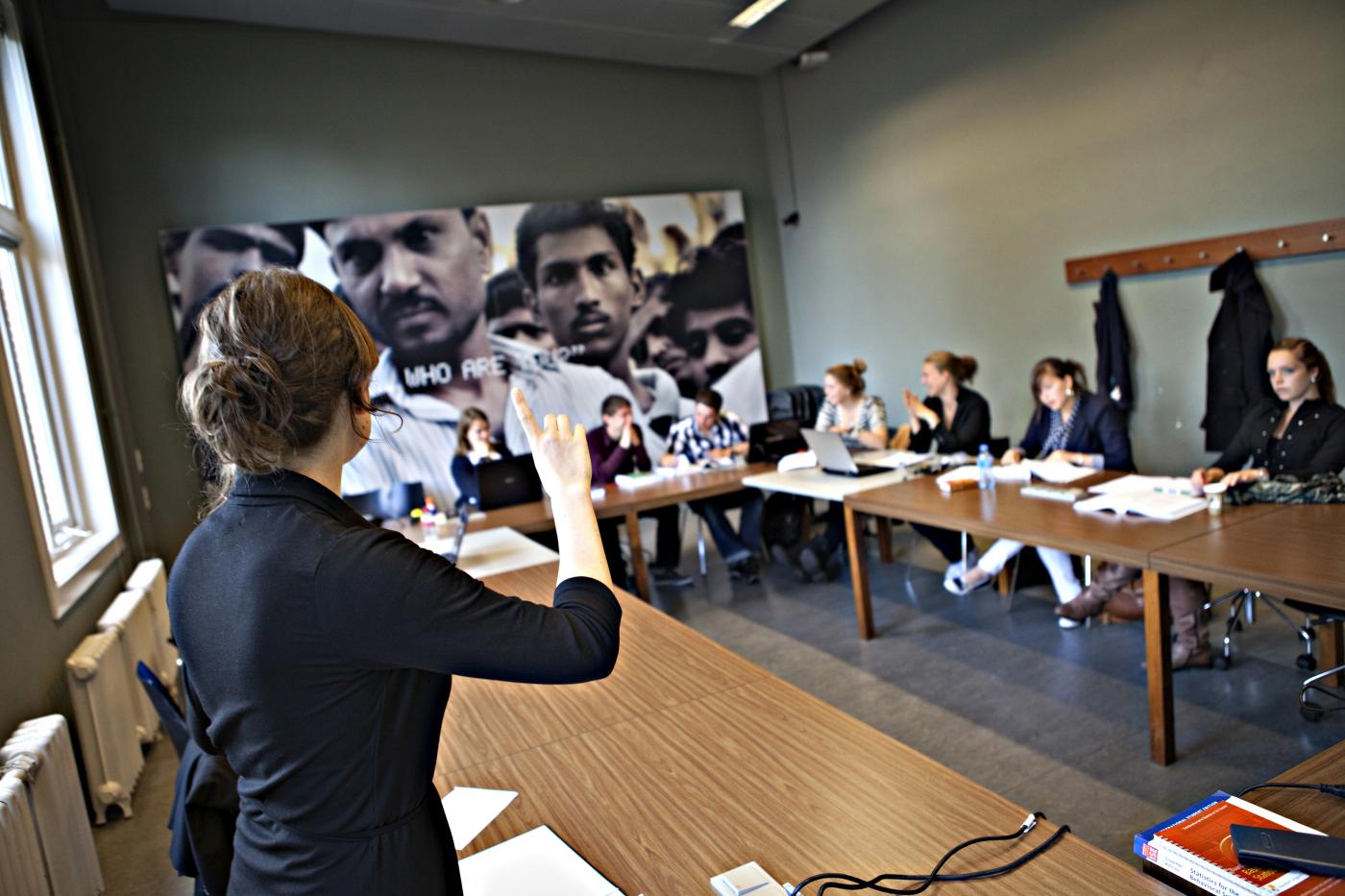‘Longer-term contracts for teachers: good, but we’re not there yet’

Of course, Pieter de Bordes, teacher of Social Sciences, is happy about the measures taken by the university board. The certainty of having a four-year contract is a vast improvement over the nerve-wracking situation of short-term contract extensions for up to four years. “Right now, people are continuously stressed about their contracts. They feel like they constantly have to prove themselves, and that they’re dependant on all sorts of things they have no control over.”
Still, De Bordes and his colleagues don’t feel there’s a reason to call off their symposium about the problematic circumstances of temporary teachers. The initiative was taken and supported by the teachers’ platform Teaching Academy UU (TAUU), and takes place on Friday afternoon, December 14, in the University Hall.
De Bordes: “Many people are asking: ‘Didn’t you achieve what you set out to do?’ I don’t think so. In the new situation, excellent teachers – even those named ‘teacher of the year’ by students – still have to leave after a few years. Plus, many of the current temporary teachers are still uncertain about whether their contracts will be extended.”
Structural work
In the manifest (in Dutch) the group of temporary teachers wants to present during the symposium, they ask for both longer contracts for temporary teachers and more permanent contracts. In the document, which can also be signed online, they call for the university to comply with the collective labour agreement article that states that ‘in principle, the employment contract shall be concluded for an unspecified period of time, unless a temporary employment contract is considered to be necessary.’
“Universities are now saying they can only offer temporary contracts because of the fluctuation in student numbers,” De Bordes says. “But if you look closely, you see there’s always a structural lower limit of that number. You can base your percentage of permanent contracts on that limit. The starting point should be permanent jobs for structural work.”
Article continues under the photo

The absence of permanent staff means temporary teachers are often given jobs that aren’t in their task descriptions, De Bordes knows. For two years, he interviewed his close colleagues about the issues. “Many temporary employees have to continuously read up on the material they have to teach, but they’re also made to coordinate courses, or even develop new courses. That’s not in the job profile of ‘teacher 4’ for starting temporary teachers.”
The Social Sciences teacher continue: “It would be great if we could give the teachers who do this work and are appreciated for it a job profile that these tasks actually belong to. They leave the university with all sorts of useful knowledge and networks, and their successor has to go through the exact same process. That’s enormous destruction of resources, and it’s extremely bad for the quality of education.”
De Bordes understands that the university only wants to give permanent contracts to employees who also conduct research, in order to strengthen the ties between research and education. At the same time, he’s noticed a discrepancy. “At the moment, we’re not realising that ambition to be a research university for students either, as a large part of the education is taught by temporary teachers who aren’t given any research time at all.”
He himself calls for permanent contracts for teachers with 80 percent education and 20 percent education-related research, and to assess them mostly on their educational tasks. “That way, for some, you make education of primary importance again, which will help the quality of education. If those teachers don’t have their PhDs yet, the UU could make agreements on PhD tracks and offer guidance.”
Look to the future
The manifest expressly asks for attention to the unclear career perspectives of temporary teachers. The new collective labour agreement does include a requirement to offer temporary teachers an education and guidance plan, of which the basic teaching qualification is a part, but De Bordes and his colleagues say it remains unclear what the end goal of that track is. With all uncertainty that that entails.
De Bordes: “Now I’m hearing here and there that teachers at the university will have the option of switching to high schools. But what if that’s not what you want to do? Or if it’s not exactly self-evident to do so in your discipline – such as mine, which is psychology?”
Bordes calls the collective labour agreement article that says temporary teachers who wish to do a PhD track can get a six-year contract “unrealistic”. “An average full-time PhD track takes five years, according to the Rathenau Institute (pdf). How will anyone achieve that if you also have to teach three days a week and have to obtain your teaching qualification?”
De Bordes and his colleagues call for the university to start a project group with teachers, potential employers, and possibly PhD supervisors, in order to find “concrete professionalisation tracks”. In Social Sciences, he says steps to this point have already been taken, but the people behind the symposium would like to see a university-wide policy offering “a clear and realistic perspective for the future”. “The symposium isn’t meant to bash the university or anything like that. We really want to work together to find constructive solutions.”
Sense of honour
For now, De Bordes thinks universities should be happy that temporary students are so motivated. He refers to an opinion piece (in Dutch) in De Volkskrant written by History teacher René Koekoek, who says the university keeps functioning thanks to the work ethic and sense of honour amongst academics.
De Bordes: “Everyone loves working here, despite the high workloads. Everyone wants to achieve high quality, and you want to take extra steps to get there.” Grimacing, he adds: “You just can’t want to think about your future too much.”
Symposium: ‘Long live the temporary teacher?!’
When? December 4, 2018, 4pm-6pm
Where? Auditorium, University Hall Utrecht